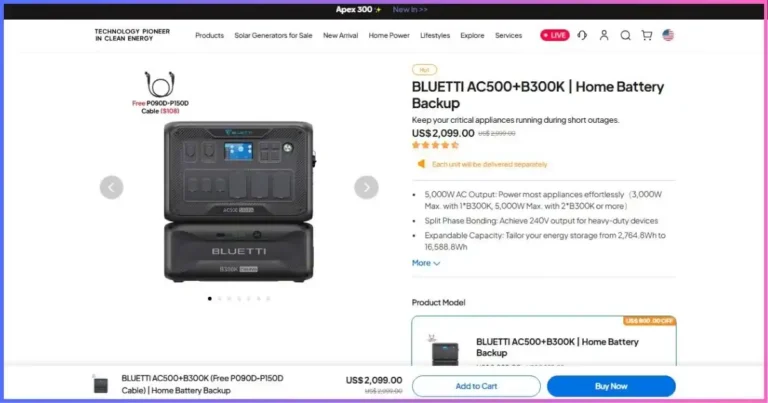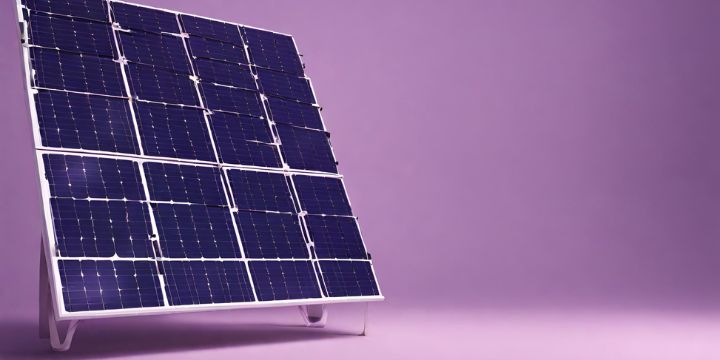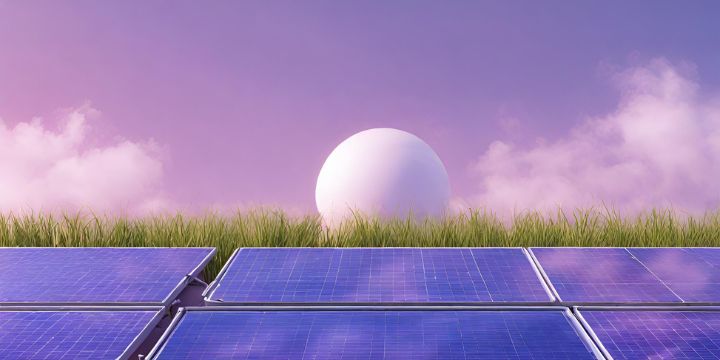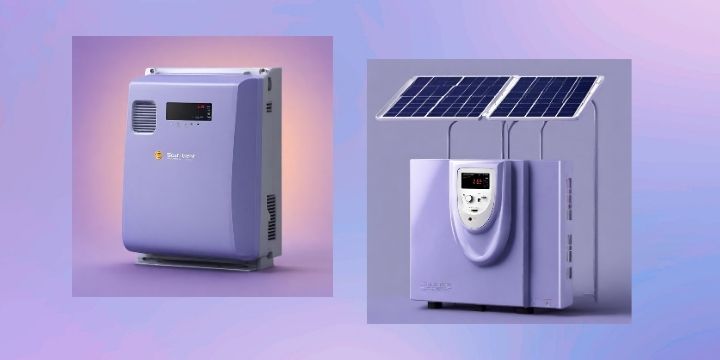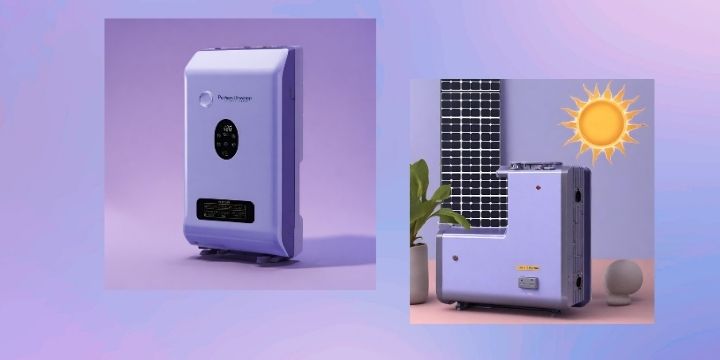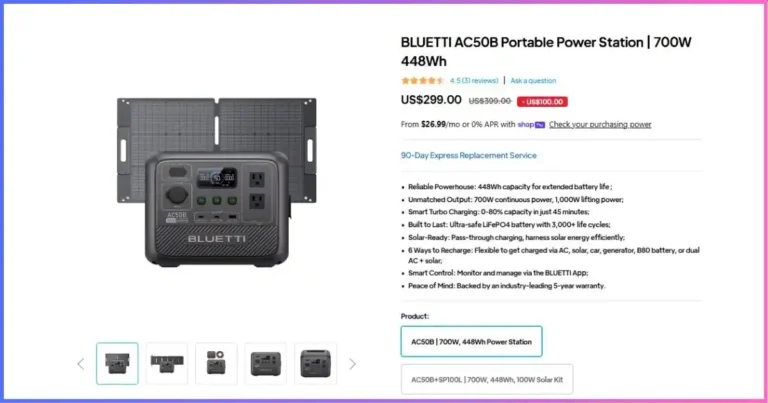How to Choose The Right Solar Inverter: A Guide for Your Solar System
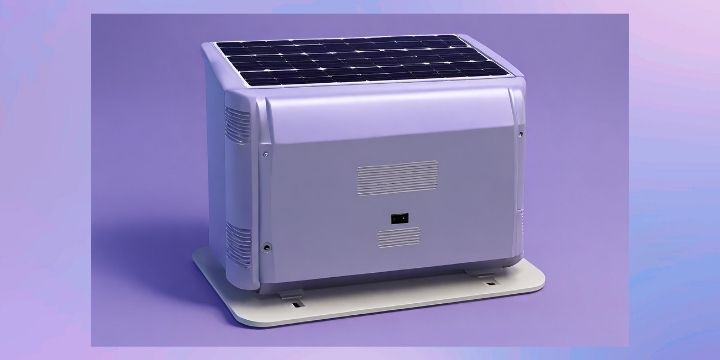
As you contemplate installing solar panels in your home, one of the most important decisions you will make is selecting the right solar inverter for your system.
The inverter is the critical component that converts the direct current (DC) generated by your solar panels into the alternating current (AC) used in your home. Choosing an inverter that is properly sized for your array and compatible with the electrical specifications of your utility grid will ensure maximum energy production and cost savings.
However, with so many inverter options on the market today at a wide range of price points, determining the optimal inverter for your needs can be an overwhelming challenge.
Reliable Power Anywhere
Experience the freedom of portable power with Bluetti's cutting-edge solar generators and power stations. Whether you're camping, preparing for emergencies, or reducing your reliance on the grid, Bluetti offers reliable, eco-friendly solutions that keep you powered up anywhere.
Explore Bluetti Products NowThis article provides an overview of the key factors you should consider as you evaluate inverters to find the perfect match for your residential solar installation. By the end of this guide, you will have the knowledge and confidence to choose an inverter that will serve as the beating heart of an efficient, durable solar system for your home.
Key Factors to Consider When Choosing a Solar Inverter
When choosing a solar inverter for your photovoltaic system, several factors should be considered to ensure maximum efficiency, safety, and cost-effectiveness.
Safety Certification
Look for inverters that meet national safety standards for solar inverters to avoid potential hazards. In the U.S., UL 1741 certification indicates the inverter meets safety requirements. In Europe, inverters should have CE markings. Choosing an inverter without proper certification could put you and your home at risk.
Cost
The inverter cost makes up 10-15% of a residential solar system. More advanced inverters with features like WiFi connectivity or energy storage compatibility may cost slightly more upfront but can yield energy and financial savings over the lifetime of the system. Consider your budget and needs to find an inverter that balances cost and functionality.
Go Green with Bluetti
Take a step towards sustainability with Bluetti’s advanced solar technology. From high-capacity power banks to efficient solar panels, Bluetti helps you harness the power of the sun to reduce your carbon footprint without compromising on performance.
Shop Sustainable Power SolutionsSystem Size and Geography
Select an inverter appropriate for your array’s size and location. An undersized inverter will not convert all the energy from your panels, wasting potential savings. An oversized inverter is inefficient and expensive.
Inverters must also be properly rated for the climate they will operate in, especially in very hot or cold environments. Consult an expert to determine the right size and type of inverter for your unique system and geography.
By taking the time to evaluate these key factors, you can choose a solar inverter that operates safely, efficiently, and cost-effectively for your needs. The ideal inverter will serve as the critical link between your solar panels and the grid or battery system to maximize the benefits of your solar investment.
Top Inverter Brands on the Market
As you consider inverters for your solar power system, three of the top brands on the market are SolarEdge, Enphase, and SMA.
SolarEdge
SolarEdge is considered one of the best overall inverter brands, earning high marks in nearly every category. Their inverters are reputed for being extremely efficient, with some of the highest conversion rates available.
SolarEdge also provides excellent monitoring capabilities, allowing you to track the performance of each individual solar panel. While SolarEdge inverters tend to cost slightly more upfront, many homeowners find that the energy savings and performance over the lifetime of the system offset any initial cost differences.
Enphase
Enphase is known for having the best warranty among inverter brands and is popular among consumers. Enphase’s microinverters are installed on each individual solar panel, rather than having one central inverter for the entire system.
This can provide a more balanced power output and reduce the impact of any issues with a single panel. Enphase is also a leader in integrated energy management solutions, with options to add home energy automation and storage to their solar inverter systems.
Power Your Adventures
Don't let power outages or off-grid adventures slow you down! Bluetti's portable solar-powered solutions are designed for convenience and efficiency, making them the perfect companion for any lifestyle.
Discover Bluetti's Portable PowerThe main downside is that microinverters tend to be slightly more expensive than a standard string inverter.
SMA
SMA is a reputable and efficient string inverter manufacturer that is highly regarded in the industry. They are one of the most popular brands for residential and commercial solar installations.
SMA inverters are very durable and long-lasting, with warranties of up to 25 years. They also tend to be very competitively priced. The main limitation is that as string inverters, they may be slightly less optimized than microinverter options. However, for most standard solar installations, an SMA inverter will work very well at a lower cost.
Inverter Sizing – How to Choose the Right Size for Your System
When choosing an inverter for your solar power system, selecting the proper size is critical to its effective and efficient operation. An inverter that is too small will not be able to fully utilize the energy from your solar panels, reducing the system’s overall output. However, an oversized inverter is an unnecessary expense and reduces efficiency.
Determine Your Energy Needs
The first step is to calculate your average daily energy usage in watt-hours. Review 12 months of utility bills to determine your kilowatt-hour (kWh) consumption and divide by 30 days to get your daily average. Add about 25% to account for future increased usage or the addition of new appliances and devices. This total is the minimum size inverter, in watts, you will need for your system.
For residential systems, inverters typically range from 3,000 to 10,000 watts or more for larger homes. The inverter size should be slightly larger than your maximum load to allow for efficiency losses. An inverter that is 25 to 50% greater than your calculated minimum size is usually sufficient.
Consider Future Expansion
It is a good idea to size your inverter to allow for future expansion of your solar panel system. If you plan to add more panels over time to increase energy production, choose an inverter that can handle the additional capacity.
Your inverter should be able to operate at 30 to 50% of its maximum continuous output for the best efficiency. This allows room for your system to grow over its 25+ year lifespan.
Match Inverter to Solar Panels
For the best performance, choose an inverter with a maximum power point tracking (MPPT) voltage range that corresponds to your solar panels’ specifications.
The inverter and panels should have a compatible nominal voltage, and the inverter’s MPPT range should encompass the panels’ maximum power voltage (Vmp). When the inverter and panels are well-matched, the system will operate at peak efficiency.
By calculating your energy needs, allowing for future expansion, and matching components properly, you can choose an inverter that is sized just right for your solar system. An inverter that is too small or too large will reduce performance and efficiency, so taking the time to determine the right size is a worthwhile investment.
Additional Features to Look for in a High-Quality Inverter
When selecting an inverter for your solar system, consider additional features that can improve its performance and longevity.
Warranty and Service Plan
High-quality inverters typically come with longer, more comprehensive warranties and service plans. Look for at least a 5-year warranty that covers parts and labor. Longer warranties, up to 10-15 years, demonstrate the manufacturer’s confidence in the product. Service plans provide annual maintenance to ensure optimal performance.
Monitoring Capabilities
Advanced inverters allow you to monitor energy production through digital displays, web portals, and mobile apps. Monitoring production, usage, and savings over time helps ensure your system is performing as expected. Web portals and apps provide access anytime, anywhere. Real-time alerts notify you of any issues requiring attention.
Safety Certifications
Reputable inverters meet the highest safety and performance standards like UL1741 and IEEE 1547. These certifications indicate the inverter’s ability to automatically disconnect from the grid in the event of a power outage to avoid hazardous back-feeding of electricity.
Certified inverters also go through rigorous testing to ensure efficient, reliable operation in a range of temperatures and conditions.
Energy Management Options
Higher-end inverters provide energy management options like load control, battery integration, and time-of-use programming. Load control allows you to optimize when certain appliances and devices draw power from the inverter.
Battery integration works with home energy storage systems to provide backup power. Time-of-use programming helps maximize the self-consumption of solar energy when rates are highest.
Expandability
If you plan to expand your solar system in the future, choose an inverter that can accommodate additional panels. Higher capacity inverters, sized for potential expansion, allow for a larger overall system and greater energy production over time without requiring replacement of the inverter. Some inverters also have ports for connecting multiple units if even more capacity is needed.
With the range of inverters available, additional features can help determine the right solution for your needs and budget. Focusing on product quality, safety, and energy management options will ensure an inverter that serves you well for decades.
Conclusion
Whether you want an inverter for your home or business, choosing one that suits your needs is key to harnessing solar energy efficiently and affordably. Do your research to determine how much power you require and the features that are important to you. Consider the inverter type, size, connectivity, and monitoring options that make the most sense for your situation.
While price is always a factor, don’t choose an inverter solely based on cost – look for a high-quality, reliable product from a reputable brand to ensure maximum energy production and return on your investment.
Disclosure: We may earn commission for purchases that are made by visitors on this site at no additional cost on your end. All information is for educational purposes and is not intended for financial advice. Read our affiliate disclosure.

